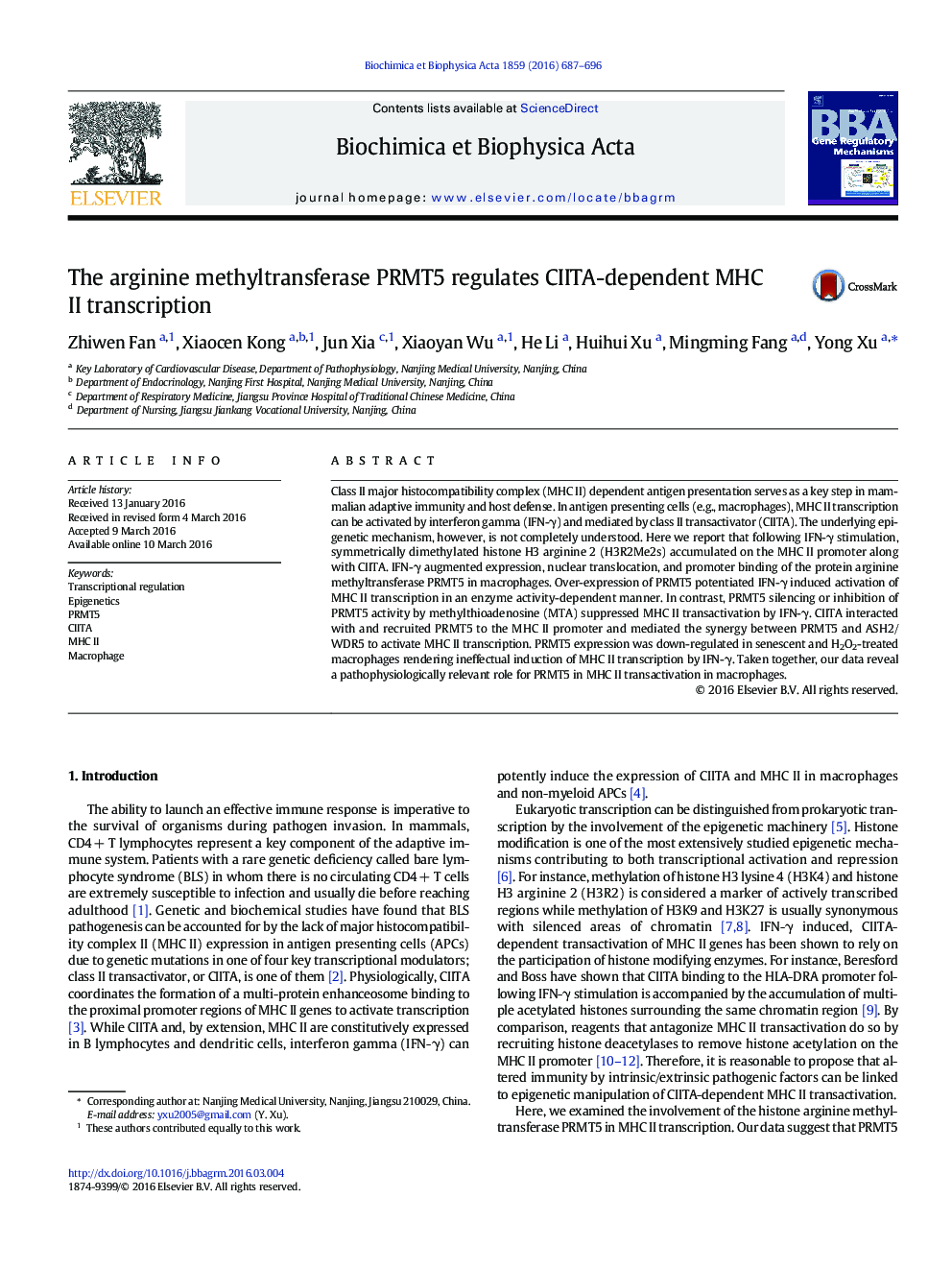| Article ID | Journal | Published Year | Pages | File Type |
|---|---|---|---|---|
| 1946314 | Biochimica et Biophysica Acta (BBA) - Gene Regulatory Mechanisms | 2016 | 10 Pages |
•IFN-γ stimulates the expression and activity of PRMT5 in macrophages.•PRMT5 activates MHC II transcription in an enzyme activity-dependent manner.•CIITA recruits PRMT5 to activate MHC II transcription.•PRMT5 is down-regulated by senescence and H2O2 treatment in macrophages.
Class II major histocompatibility complex (MHC II) dependent antigen presentation serves as a key step in mammalian adaptive immunity and host defense. In antigen presenting cells (e.g., macrophages), MHC II transcription can be activated by interferon gamma (IFN-γ) and mediated by class II transactivator (CIITA). The underlying epigenetic mechanism, however, is not completely understood. Here we report that following IFN-γ stimulation, symmetrically dimethylated histone H3 arginine 2 (H3R2Me2s) accumulated on the MHC II promoter along with CIITA. IFN-γ augmented expression, nuclear translocation, and promoter binding of the protein arginine methyltransferase PRMT5 in macrophages. Over-expression of PRMT5 potentiated IFN-γ induced activation of MHC II transcription in an enzyme activity-dependent manner. In contrast, PRMT5 silencing or inhibition of PRMT5 activity by methylthioadenosine (MTA) suppressed MHC II transactivation by IFN-γ. CIITA interacted with and recruited PRMT5 to the MHC II promoter and mediated the synergy between PRMT5 and ASH2/WDR5 to activate MHC II transcription. PRMT5 expression was down-regulated in senescent and H2O2-treated macrophages rendering ineffectual induction of MHC II transcription by IFN-γ. Taken together, our data reveal a pathophysiologically relevant role for PRMT5 in MHC II transactivation in macrophages.
